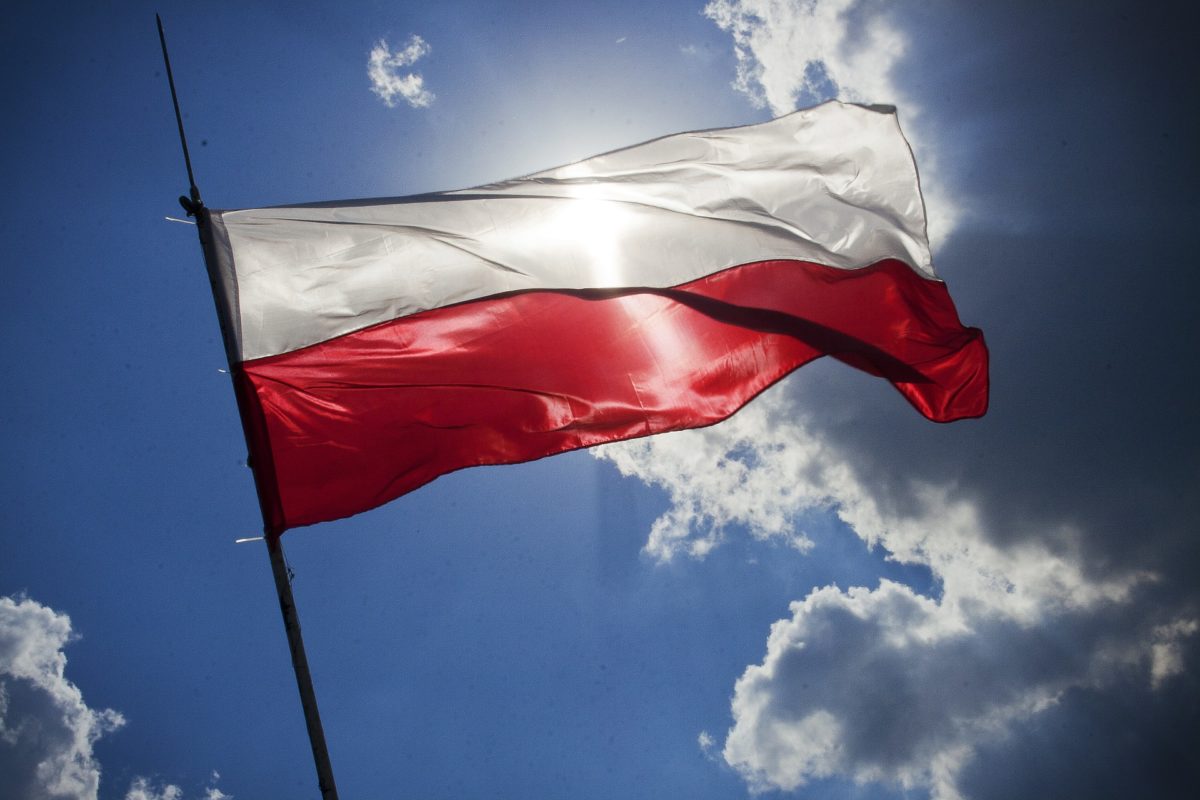PGE Energia Odnawialna, the renewable energy branch of Poland’s state-owned utility Polska Grupa Energetyczna (PGE SA), has signed a letter of intent with Polish chemical companies Grupa Azoty Kopalnie i Zaklady Chemiczne Siarki Siarkopol S.A. and Grupa Azoty S.A. for a large-scale solar project that is expected to provide them with electricity under a corporate PPA.
PGE said the 5 MW solar plant will be built outside of the Polish renewable energy auction scheme. It will occupy 10 hectares of land owned by Grupa Azoty Siarkopol in Świętokrzyskie Osiek, a town in Staszów county, Świętokrzyskie province, in south-central Poland.
The project is expected to come into operation in mid-2022 and will utilize approximately 16,000 solar modules. “It will be the first photovoltaic installation in Poland built for the needs of an industrial customer,” said the president of the management board of PGE, Henryk Baranowski. “Thanks to the corporate PPA enabling the purchase of energy directly from the PGE Group, Azoty Siarkopol Group will gain access to clean and ecological energy on very favorable terms.”
The company did not provide any other technical or financial details on the project or the terms of the PPA to be signed with the two chemical companies. It said the project is part of its plan to deploy around 2.5 GW of PV capacity in Poland by 2030.
In a statement to pv magazine, Piotr Pająk, from renewable energy news site Gramwzielone.pl, has stressed that Polish state utilities have not been active in development on PV plants in Poland so far. “PGE, Tauron, Enea and Energa didn’t participate in recent auctions for PV and, however, as CO2 emissions of their coal power plants are worsening their business, they turn into renewable energy in order to decrease the CO2 impact,” he explained. “PGE announced ambitious plans in terms of PV as recently did Tauron and growing costs of energy for Polish industry creates opportunity for commercial power purchase agreements,” Pająk added, while also stating that costs of energy in Poland will grow further and that will increase interest also for self-consumption PV installations. “Morevover, the Polish government is currently streamlining regulations which will facilitate PV installations for SME,” he further explained.
A solution for rising electricity prices
Electricity prices for non-household consumers in Poland have been relatively low in recent years. According to Eurostat, Polish commercial and industrial customers paid lower power prices than those in France, Lithuania, Estonia and Austria in the second half of last year. The country is positioned in the middle of the continent's rankings, far below countries with the most expensive electricity in Europe, such as Germany, Italy, Cyprus and the United Kingdom.
However, Poland’s current strategy to somehow preserve its dominant coal industry could lead to price increases in the coming years, but corporate PPAs may help large industrial companies reduce their energy bills.
Popular content
According to Polish renewable energy institute, Instytut Energetyki Odnawialnej (IEO), the average wholesale price of electricity on the Day-Ahead Market began to rise significantly at the beginning of last year. The IEO experts primarily attributed the price increases to the higher cost of coal and, more generally, to the country's energy strategy, which still includes the construction of a new 1 GW coal power plant in Ostroleka, northeastern Poland. However, the project still faces challenges in securing financing.
The authors of the study further claim that in a scenario in which coal and nuclear power do prevail, power prices could rise by 30% in 2030 and even by 60% in 2050, compared to current levels. In a more optimistic scenario, where solar and renewables take the lead, power prices are expected to decrease by between 1.5% and 2% over the long term, they said.
Seeking land for solar development
Meanwhile, PGE Energia Odnawialna recently published an announcement in the Polish media in which it said it is seeking plots of land with a minimum area of at least 2 hectares for the development of utility-scale solar plants. Eligible properties must not be protected and have nearby power lines, preferably of 15 kV.
The company has also expressed interest in acquiring solar installations up to 1 MW in size that have been built through an ad-hoc auction scheme. Last June, it announced a plan to build a PV laboratory and PV panel test field in Siedlce, in the eastern part of the country.
PGE Energia Odnawialna currently operates 33 hydroelectric power plants, 14 wind farms and one 600 kW PV power plant, with a combined capacity of 2.1 GW. Its parent company, however, is still among Europe’s largest power producers based on coal, with two large lignite mines and around 40 power plants that mainly use hard coal and lignite. It currently has a share of around 36% of Poland’s energy market. The Polish State Treasury holds a 57.39% stake in the company.
This content is protected by copyright and may not be reused. If you want to cooperate with us and would like to reuse some of our content, please contact: editors@pv-magazine.com.



2 comments
By submitting this form you agree to pv magazine using your data for the purposes of publishing your comment.
Your personal data will only be disclosed or otherwise transmitted to third parties for the purposes of spam filtering or if this is necessary for technical maintenance of the website. Any other transfer to third parties will not take place unless this is justified on the basis of applicable data protection regulations or if pv magazine is legally obliged to do so.
You may revoke this consent at any time with effect for the future, in which case your personal data will be deleted immediately. Otherwise, your data will be deleted if pv magazine has processed your request or the purpose of data storage is fulfilled.
Further information on data privacy can be found in our Data Protection Policy.